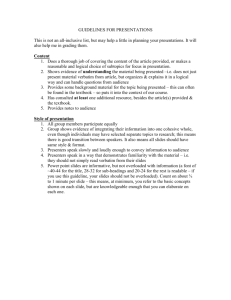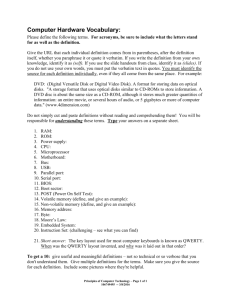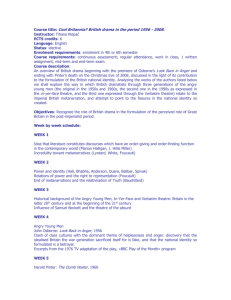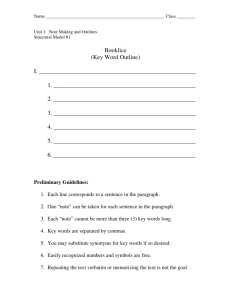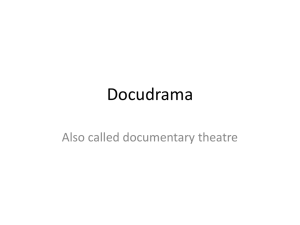writing sample
advertisement
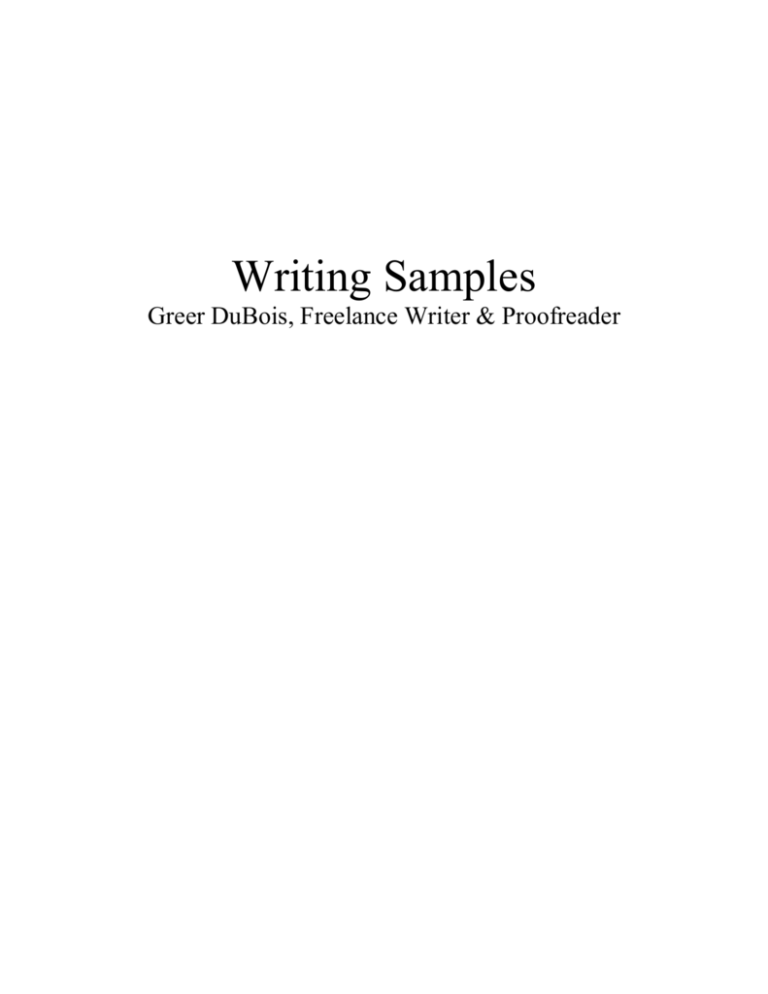
Writing Samples Greer DuBois, Freelance Writer & Proofreader Academic Writing Verbatim Theatre and the Contract to Journalistic Ethics Introduction “Raw information,” “real…words of real people,” “the bracing stimulus of fact.” These are typical examples of epithets applied to verbatim theatre, here by the British Theatre critic Michael Billington (Billington 1). Verbatim theatre is a form of documentary theatre characterized by the word-for-word use of interviews, court records, and other forms of oral testimony. Because of its name, “verbatim”, it conjures up an image of exactness and accuracy, and verbatim theatre is often assumed to be the most journalistic of all forms of documentary theatre. “At a time when there is enormous public skepticism not only about politics but about the media, the theatre can offer a source of (relatively) uncontaminated truth,” Billington writes. Billington, like many other critics and audience members, here assumes two crucial things about the nature of verbatim theatre: first, that its goal is to inform audiences about facts (like a news story) and that it will therefore adhere to standards of objectivity and accuracy held by professional journalists; and second, that what makes verbatim theatre valuable is how well it uncovers hidden facts and presents a balanced perspective on a problem, acting as a source which the audience can turn to in forming its opinions (again, like journalism). These two assumptions serve for Billington, and many others, as the contract between a verbatim play and its audience: the piece will be accurate, and will seek to inform in an unbiased manner, and the piece’s worth emerges from its accuracy and its ability to inform. However, are Billington’s assumptions in line with what verbatim theatre really is? Furthermore, are its practitioners aware that this is the assumed contract of verbatim theatre—and are they holding themselves to the same standards of accuracy and the same focus on fact and objectivity that their audiences and reviewers will? In fact, they are not. An analysis of verbatim plays—in this paper, Robin Soan’s Talking to Terrorists and Anna Deavere Smith’s Fires in the Mirror—and the process of their creation shows that verbatim practitioners actually hold a wide variety of ideas about the place of factual accuracy in their work, and some even use practices in collecting interviews that would be unethical for a journalist. But this does not make these plays worthless. This is because, for the verbatim playwright, the purpose of the verbatim play is not to inform, but to use a person’s real words to engage an audience, persuading them to appreciate the individuality and beauty of those words. It is this deep engagement with language that is at the heart of verbatim theatre, and not journalistic accuracy. Therefore, the current “contract” has it all wrong: we must re-write it to reflect verbatim’s actual goals for poetic authenticity. Journalism and Verbatim Theatre Before one can begin to examine verbatim plays and playwrights and their conception of their contract, one must get a grasp of what audiences and critics assume about the verbatim genre. To understand the importance of this, one need only turn to Mike Daisey and the recent uproar over his monologue, The Agony and the Ecstasy of Steve Jobs. Daisey was plunged into scandal after parts of his piece were found to be fictional by the fact-checking department of This American Life (Karr 1). Although Daisey is not a verbatim playwright, and the placement of The Agony in a journalistic venue like This American Life is what ultimately got him into trouble, the moral of the episode easily applies to verbatim theatre. A verbatim theatre piece is assumed to adhere to the standards of journalism; when it is found otherwise, the artistic and personal integrity of the writer is called into question…. Journalism, long-form “Wibbly-Wobbly, Timey-Wimey”: Re-enchantment, Cheating, and the Aesthetics of Contemporary Science Fiction A controversy erupts over my Facebook newsfeed this morning, November 22nd 2013. Who’s the wrath directed at? At Steven Moffat, British TV writer, (in)famous in the sci-fi and fantasy communities for his internationally popular series Sherlock, and current show runner of the hallowed British series Doctor Who. If you are uninitiated to the intense world of contemporary geek TV/film culture, simply know that Moffat’s name is not exactly unsullied for Who fans already (google “steven moffat sucks” if you feel up to it). But what’s causing this most recent geyser of vitriol is Who’s 50th Anniversary Special, “The Day of the Doctor.” Granted, pulling together a fifty-year-old series, with twelve major actors in the lead role, that has transformed from isolated fandom in England to an international phenomenon with its center of gravity in America is impossible. But what about “The Day of the Doctor” has so roused the sleeping hornets of the Internet? I’m going to assume if you’re reading this that you’ve either seen the special or don’t mind me spoiling it for you (READ: SPOILERS). “Day” is the aesthetic culmination of Moffat’s three years as show runner: it’s quippy, quick, and has a twisty plot that breaks any rule of time travel anyone has ever come up with ever. But what’s really pissing off some fans is the fact that Moffat uses his time-plot to undo the end of the Time War, a universe-wrenching conflict between the Time Lords of Gallifrey (the Doctor’s species) and their nemesis the Daleks. For the past eight years, Who’s stories have all been based on the premise that the Doctor, backed into a corner at the end of the War, was forced to kill everyone—all the Time Lords, all the Daleks—in order to save the universe. Consequently, the Doctor has been a character limping along with a suitcase full of centuries-old regrets, trying to find scraps of meaning in an unfair world. This backstory has made his relationships with the series’ secondary characters extremely poignant and well-drawn: the Doctor has basically relied on his companions as his reason for existing, and you get the feeling that if he went alone for too long, he’d probably off himself.
